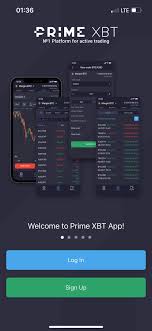
Frequently Questions About Trading on
In the world of trading, understanding the fundamental concepts, strategies, and tools is crucial for success. Many new traders often have similar inquiries regarding the trading landscape. Here, we address some of the Frequently Questions About Trading on PrimeXBT preguntas frecuentes PrimeXBT to help you navigate this exciting field.
1. What is trading?
Trading is the act of buying and selling financial instruments, such as stocks, currencies, commodities, or derivatives, with the aim of making a profit. Traders strategically enter and exit positions based on market analysis, economic indicators, and trader sentiment.
2. How do I start trading?
To start trading, you should follow these basic steps:
- Educate yourself about different financial markets and trading strategies.
- Choose a reliable brokerage platform that suits your trading style.
- Open a trading account and deposit funds.
- Start with a demo account to practice without risking real money.
- Begin trading with small amounts while refining your strategies.
3. What types of trading are there?
There are several types of trading styles that cater to different investor profiles:
- Day Trading: Involves executing trades within the same day and closing all positions before the market closes.
- Swing Trading: Traders hold positions for several days or weeks, capitalizing on shorter-term market movements.
- Scalping: Focused on making quick, small profits from minor price changes, often executing multiple trades within a short period.
- Position Trading: A long-term strategy where traders hold assets for months or years, based on fundamental analysis.
4. What is the difference between trading and investing?

While trading and investing both involve buying and selling financial assets, the primary distinction lies in the time horizon and approach:
- Trading: Typically characterized by a short-term focus and frequent transactions. Traders often rely on technical analysis and market trends.
- Investing: A long-term strategy where investors purchase assets with the expectation that they will grow in value over time, usually based on fundamental analysis.
5. What tools do I need for trading?
Some essential tools for trading include:
- Trading Platform: A software application that allows you to execute trades and analyze market data.
- Charting Software: Helps visualize price movements and identify trends using various technical indicators.
- News Feeds: Timely information about economic events that can influence market behavior.
- Risk Management Tools: Tools like stop-loss orders help you manage potential losses.
6. What are the risks involved in trading?
Trading inherently carries risks due to market volatility and unpredictability. Key risks include:
- Market Risk: The possibility of losing money due to adverse market movements.
- Liquidity Risk: The risk of not being able to buy or sell an asset quickly enough to prevent a loss.
- Leverage Risk: Trading on margin amplifies both gains and losses, potentially leading to significant financial loss.
7. How do I develop a trading strategy?
Creating a successful trading strategy involves several steps:
- Define your financial goals and risk tolerance.
- Conduct thorough market research and choose a specific asset class.
- Decide on your trading style (day trading, swing trading, etc.).
- Incorporate technical and fundamental analysis for informed decision-making.
- Backtest your strategy using historical data to assess its viability.
- Analyze and adjust your strategy based on results and changing market conditions.

8. What should I consider before making a trade?
Before executing a trade, consider the following factors:
- The market environment and prevailing trends.
- Your analysis and prediction for the asset’s future movement.
- Your risk management plan, including stop-loss and take-profit levels.
- News events or economic data releases that may impact the market.
9. Is trading suitable for everyone?
Trading can be suitable for individuals willing to learn, practice discipline, and manage risks effectively. However, it may not be appropriate for everyone due to:
- The potential risk of loss exceeding initial investments.
- The need for continuous education and adaptation to market changes.
- Emotional and psychological pressure associated with making quick decisions.
10. Where can I find more resources on trading?
Numerous resources are available for traders, including:
- Books: Explore trading books and literature by renowned authors for in-depth knowledge.
- Online Courses: Many platforms offer courses tailored to different trading strategies and levels of experience.
- Webinars and Podcasts: Follow industry experts who frequently share insights and tips on trading.
- Trading Forums: Engage with fellow traders to exchange knowledge and experiences.
Conclusion
Understanding the essentials of trading is vital for anyone diving into the financial markets. By addressing frequently asked questions, we hope to empower both new and experienced traders to make informed decisions. Whether you are just starting or looking to refine your strategies, continuous learning and adapting are key to achieving trading success.
